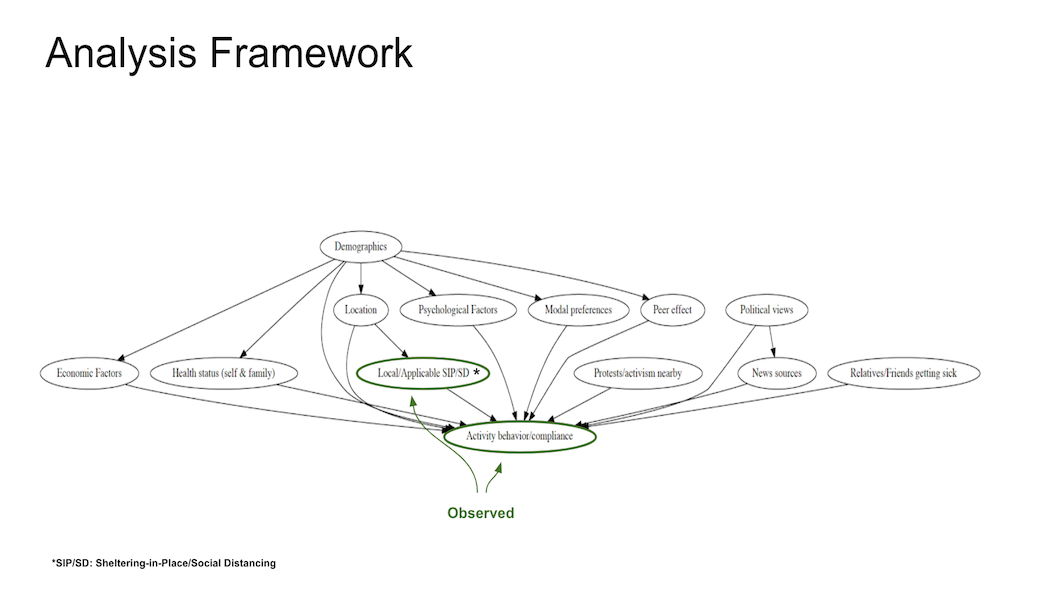Project team: Hassan Obeid, Mohamed Bouzaghrane, Dan Chatman, Karen Frick, Raja Sengupta, Joan Walker, Daniel Rodriguez. Recent studies of household responses to COVID-19 have failed to collect data on the underlying structural and economic factors that condition people’s ability to comply with social-distancing and shelter-in-place rules. Such data are needed to mitigate the effects of the pandemic and to safely begin to open the economy. Through a research partnership with Embee Mobile, an industry leader in providing mobile insight solutions, we use a unique sample of more than 100,000 US mobile phone users, taking pre- and post-COVID movement data from GPS traces to measure changes in household activity patterns and correlate those with baseline demographics such as household income, household size, and race/ethnicity. We will then, over a minimum three-month period, repeatedly survey a subsample of individuals in ten metropolitan areas to measure economic well-being, mental health, personality, political orientation, and barriers to sheltering along with documenting changes in activity patterns from GPS traces. This novel research will enable future work on experimental interventions delivered via smartphones to improve compliance. The research seeks to determine how households’ ability and willingness to engage in risk-reducing behavior vary according to economic, demographic, occupational, and ideological factors. In the short term, understanding this will enable improved policy and targeted interventions to address health disparities surrounding COVID-19 social distancing in such a way as to also enable a safe opening of the economy. In the longer term, the information will be useful in informing behavior change programs aimed at preventing and managing infectious and chronic diseases. See http://spm.berkeley.edu/ for more information.
Smart Pandemic Management in Cities

